Researchers

Rahim Azami
M. Rahim Azami is an Afghan public health professional with post-graduation in development policies and practices. He is currently working with Aga Khan Foundation (AKF) in Afghanistan as National Program Manager, Health and Nutrition.
Working in international development, his research and evaluation career spans the not-for-profit and academic sectors. He has led, and contributed to, research and evaluation projects across Afghanistan over the last 8 years. He is a professional in the fields of Project Design and Development, Monitoring, Evaluation, and Research having more than 8 years of experience and exposure large scale development programs.

Mary Kate Cartmill
Mary Kate was a Graduate Research Assistant for the Global Research on Inclusion and Disability team and the Education Equity and Quality in Afghanistan and Pakistan (EEQAP) Project. Her primary research interests are at the intersection of equitable food systems, environmental sustainability, and community nutrition in low-resourced settings. She holds a Master’s Degree in Public Health from Washington University in St. Louis.
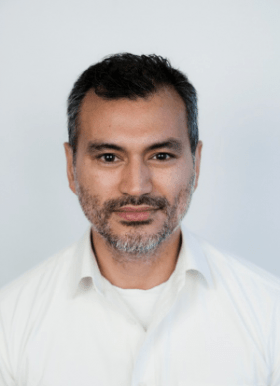
Tarani Chandola
Tarani is a Professor of Medical Sociology. He is a co-director of the ESRC International Centre for Lifecourse Studies in Society and Health and is also the co-director for the SOC-B (Social-Biological) Centre for Doctoral Training funded by the ESRC and BBSRC. He is a member of the ESRC Strategic Advisory Network, fellow of the Academy of Social Sciences and the Royal Statistical Society and is an editor-in-chief of the journal Sociology. Tarani’s research is primarily on the social determinants of health, focusing on health inequalities and psychosocial factors, and the analysis of longitudinal cohort studies.

Smita Neelkanth Deshpande
Dr Smita Deshpande MBBS (Medical College, Nagpur University), DPM (Grant Medical College, Mumbai) MD (AIIMS, New Delhi) has served as the Head, Dept. of Psychiatry and De-Addiction, Dr. Ram Manohar Lohia Hospital, New Delhi since July 2004.
She has been actively involved in clinical services, teaching and research since joining Central Health Services, Government of India in 1987.

Dominique Lopez
Dominique Lopez had the opportunity to develop knowledge and expertise on health issues such as drug use, disability or reproductive health through her involvement in various projects and positions. Based on an economic and demographic background, she is able to carry out, use and analyze different types of surveys (quantitative and qualitative) as well as statistical tools to better understand social and health situations in difficult contexts (in Afghanistan for example).

Mohammad Dauod Khuram
Mohammad Dauod Khuram is an Afghan Medical Doctor with a post-graduation degree in Public Health. Dr Khuram is a development/humanitarian work practitioner and researcher with 15 years of experience. He has extensive experience in managing development programmes, with profound expertise and experience executing research and evaluation in developing countries. Dr Khuram led the research and evaluation teams in reputed international organizations and oversaw the execution of a diverse set of wide-scale impact/outcome evaluation across different thematic areas.
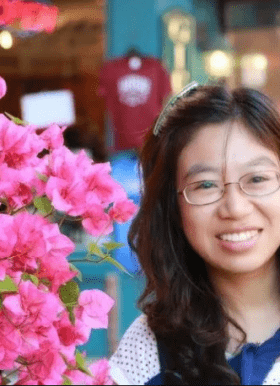
May Thu Thu Maw
May is a physician from Myanmar, who obtained an MPH with health policy analysis specialization at Washington University in St. Louis. She cames to Wash U-MPH program with experience in research, global health, healthcare delivery management and clinical medicine. May is interested in health policy and healthcare reform regarding effective healthcare delivery system in resource limited settings.

Sharon Low
Sharon Low is a humanitarian and development researcher and practitioner, who has worked extensively on public health and social protection issues in conflict-affected and fragile countries. Her expertise is on integrated organizational and project level monitoring and evaluation systems involving health systems, governance, natural resource management, market development, civil society as well as education where she manages large data collection and ensuring quality of data.
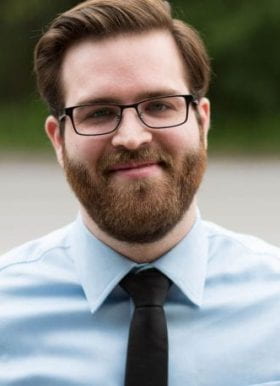
Kyle Pitzer
Kyle Pitzer is a doctoral candidate at the Brown School. His research and scholarly goal emphasize bridging the gap between the science and interventions within community contexts. This agenda has led to an interest in examining and solving a wide range of challenging issues in communities. He has conducted research on a variety of domains such as policing, mental health, voting access, and services for older adults in order to provide his expertise communities and quantitative methods.

Hashim Rawab
Hashim Rawab has a degree in Economics from the University of Kabul and post-graduate credits from the University of Texas at Austin and United Nations’ Institute of Training and Research (UNITAR) under the Hiroshima Fellowship for Afghanistan. He started his career with international NGOs including the Swedish Afghanistan Committee. Thereafter he has over 15 years of experience with the Norwegian Afghanistan Committee (NAC) in management, development works and research. Since 2011 he has been a manager for of the NAC regional operations in southern Afghanistan where he was instrumental in establishing the operations in Jaghori and Malistan Districts. He has been directly responsible for the implementation of NORAD funded Rural Development Programmes and several UN funded and World Food programmes in Southern Afghanistan.
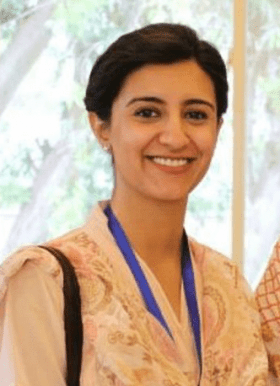
Farah Said
Farah Said is an Assistant Professor at the Lahore School of Economics and a Research Fellow at the Centre for Research in Economics and Business. As a development economist, her research has focused on the dynamics of poverty and gender in LMICs. Her current research investigates the effectiveness of community engagement and inclusive education in improving learning outcomes and psychosocial skills of students; the role of that peer pressure and agency in the household can have on individual decision making; and the role of aspirations in motivating female labor force participation.

Zijing Wang
Zijing graduated with her MSW from the Brown School in May 2021, concentrating in Children, Youth and Families. She received her BA in history from Peking University. Prior to pursuing her MSW, she worked as a project assistant in Chinese Organization for Rare Disorders. Zijing is passionate about early childhood development and inclusive education. She hopes to use system dynamics to facilitate the development of inclusive education system for children with ASD in China.

Munib Sohail
Munib Sohail is currently working with National Rural Support Progamme (NRSP) in Pakistan as Project Coordinator for Pakistan on the project Education Equity and Quality Education for Afghanistan & Pakistan. His research career spans the not-for-profit, academic and commercial sectors, working in international development, media and C4D Research and Analysis. He has led research teams for various qualitative and quantitative research projects across Pakistan. He is a professional in the fields of project management, monitoring & evaluation and research having more than 10 years of experience and exposure to big donor-funded projects.
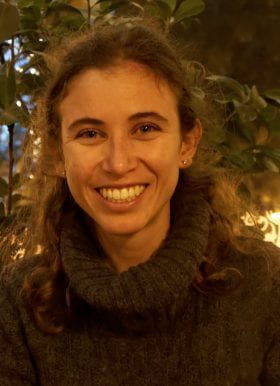
Juanita Vasquez-Escallon
Juanita mainly works on impact evaluation of development programs, with a special focus on rural development, female empowerment and conflict-related policies. She is currently involved in field experiments in Pakistan, India and the Philippines. Her interests also include behavioral economics, and has carried out framed-field experiments in Colombia, where she also worked as consultant for more than seven years evaluating social programs for the government, USAID, World Bank and the European Union, among others. Juanita has a PhD in economics from the University of Göttingen and is a post-doctoral researcher at the University of Mannheim.

Shuya Yin
Shuya Yin graduated with an MSW student at the Brown School in May 2021, concentrating in mental health and specializing in research. Her prior experiences include assisting to build trauma-informed schools with the Missouri Department of Elementary and Secondary Education, providing clinical services for traumatized adolescents at the psychiatric hospital and working for a Chinese public service consultation social enterprise. Her career focuses on trauma-informed care and family-level intervention on intergenerational violence transmission. She also hopes to use community-based system dynamics to improve left-behind children’s inclusive education in China.

Kate Gettinger
Kate Gettinger is a practicing optometrist with a specialization in low vision and geriatrics. She received her master’s in public health from Washington University in St. Louis with a specialization in health policy analysis. Her research interests include preventable blindness, health inequalities, and quality of life in relation to ocular health status and disability.

Jacqueline Moodley
Jacqueline Moodley is the head of the Department of Psychology at the University of Johannesburg, South Africa. Previously Jackie worked at the Centre for Social Development in Africa at the same University. Her research interests relate to populations characterized by poverty, disability and mental illness in South Africa. For her work, Jackie was awarded a Doctoral Fellowship from the Department of Science and Technology at the annual Women in Science Awards (WISA) in August 2017.

Meena Safi
Meena worked in the health and education sectors with more than four years of experience in a nonprofit organization in Afghanistan. She holds a Bachelor of Medical Science degree and worked as a physician in Afghanistan. Meena graduated from Washington University in St. Louis and contributed to the University's Education Equality and Quality project in Afghanistan and Pakistan (EEQAP) in 2018 and 2020.She also worked with the Norwegian Afghanistan Committee (NAC) on a national level, focusing on the Health Management Information System. In this role, she supported the education of youth in midwifery, nursing, pharmacy, and physiotherapy, emphasizing reproductive health and rights, hygiene, and gender equality. This initiative was funded by the World Bank, NORAD, and the European Union. Additionally, Meena volunteered with a civil society network, advocating for grassroots voices to be heard by the government and international donors. She has hosted TV programs for school student advocacy and was a key member of the Afghan female students' advocacy team in Kabul. In recognition of her efforts, she received the Most Influential Women Award from Galicia, Spain, in 2021.Meena was the student marshal for social work at the Brown School for 2024. She has worked with various research labs and as a volunteer translator with the law school of Washington University in St. Louis. She will begin her PhD at the University of Maryland, Baltimore, focusing on the mental health of Afghan women and children. Currently, she is working as a research assistant with the Aging Research on Alzheimer’s Disease (ARCHES) project, conducted in partnership with the WashU School of Medicine’s Department of Neurology